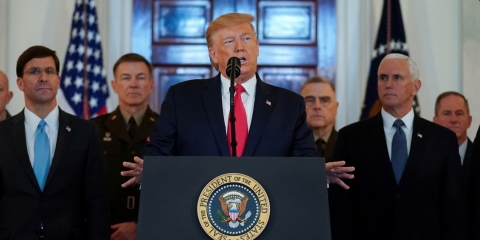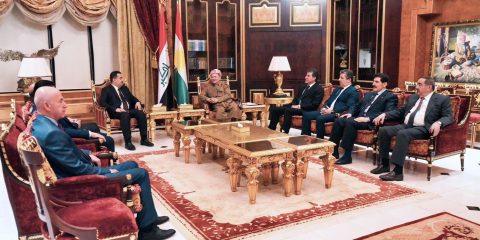Top U.S. negotiator: “Not an end, but a beginning in Iraq”
Brett McGurk, a top Iraq negotiator for both the Bush and Obama administrations, writes in the Washington Post: When President Obama declared an end to the Iraq war, he also looked forward to “a new phase in relations between Iraq and the United States.” If we play our cards right, this new phase may prove […]When President Obama declared an end to the Iraq war, he also looked forward to “a new phase in relations between Iraq and the United States.” If we play our cards right, this new phase may prove more important than the withdrawal of U.S. troops.
Critics charge that the withdrawal is a defeat for the United State and a victory for Iran, and leaves Iraq vulnerable to a rekindled civil war. They could not be more wrong.
...
To be sure, Iran retains great influence in Baghdad. But so do we. Over the course of our talks this summer, the Iraqi government quietly dismantled Iranian-backed militia groups in Maysan province, on the Iranian border. It sent messages to Tehran that any attack on U.S. forces would be considered an attack on the Iraqi state. It completed the purchase of 18 F-16s, becoming the world’s ninth-largest purchaser of U.S. military equipment — and the fourth-largest in the region behind Israel, Egypt and Saudi Arabia. These are the building blocks of a real defense partnership, and they do not require the basing of U.S. troops.





